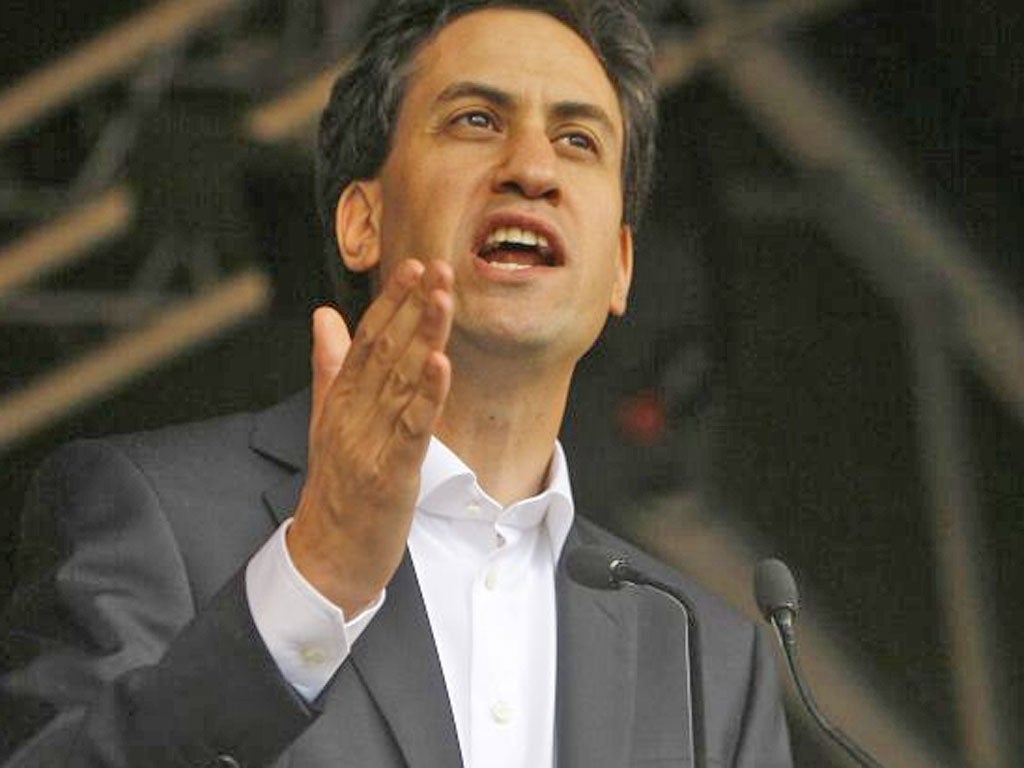Most Conservative and Labour voters believe EU in/out referendum would be bad for the economy
Although the Prime Minister’s pledge has made three in 10 people more likely to vote Conservative, half the public share concerns highlighted by Labour, the Liberal Democrats and the business community

A majority of Conservative and Labour voters believe that the delayed in/out referendum on Europe promised by David Cameron is likely to harm the economy, according to a ComRes survey for The Independent.
Although the Prime Minister’s pledge has made three in 10 people more likely to vote Conservative, half the public share concerns highlighted by Labour, the Liberal Democrats and some businessmen about pre-announcing a referendum that would not take place until 2017.
Some 49 per cent of people agree the delay is likely to result in economic harm because of the uncertainty it creates for companies and investors. Some 32 per cent disagree with this statement. But 52 per cent of Conservative supporters and 54 per cent of current Labour voters believe the delay is likely to harm the economy.
Tories will welcome the ComRes finding that 30 per cent of the public say they are more likely to back the Conservatives as a result of Mr Cameron’s referendum promise. Some 57 per cent disagree. One in six Labour supporters (16 per cent) and almost four in 10 supporters of the UK Independence Party (Ukip) are more likely to vote Tory.
But not all Conservatives are impressed by last week’s announcement: 28 per cent of current Tory supporters and 35 per cent of people who voted Tory at the last general election are not more likely to back the party after the referendum promise.
The poll suggests Ed Miliband could reap an electoral benefit if he matched Mr Cameron’s pledge. More than one in four voters (27 per cent) would be more likely to vote Labour if the party promised a Europe referendum, while 59 per cent disagree. This finding is bound to increase the pressure on Mr Miliband from within his party to offer the public a vote. He is determined to resist it, while not ruling out a referendum forever.
A smaller proportion (22 per cent) would be more likely to vote Lib Dem if the party offered a referendum, with 64 per cent disagreeing. But a quarter (24 per cent) of current Tory supporters would be more likely to back the Lib Dems.
The Prime Minister’s referendum pledge does not appear to have dented Ukip’s appeal. The anti-EU party is up one point to 10 per cent since last month, drawing level with the Lib Dems, who are unchanged on 10 per cent. Some 12 per cent of people who voted Tory in 2010 say they would vote Ukip now, enough to harm Mr Cameron’s prospects at the 2015 election if that is still the case then. Men (14 per cent) are more likely than women (5 per cent) to support Ukip.
Labour’s lead over the Conservatives has dropped from 10 to seven points since last month. Labour is now on 39 per cent (down two points), the Conservatives 32 per cent (up one point). Other parties are on 9 per cent (down one point). These figures would give Labour an overall majority of 84 at a general election.
A poll in France by research agency BVA shows that a majority (52 per cent) of French people favour Britain leaving the EU, while 48 per cent want it to stay.
Downing Street confirmed yesterday that ministers are looking at measures to curb immigration from Bulgaria and Romania when existing controls are lifted at the end of this year. The most likely option is to restrict the right of people from the two EU countries to claim state benefits in Britain. Some ministers want to curb their entry rights by declaring an “emergency” but this is unlikely to happen after legal advice saying the right to free movement in the EU should prevail.
ComRes interviewed 1,002 GB adults by telephone between January 25-27. Data were weighted to be demographically representative of all GB adults. Data were also weighted by past vote recall. ComRes is a member of the British Polling Council and abides by its rules.
Subscribe to Independent Premium to bookmark this article
Want to bookmark your favourite articles and stories to read or reference later? Start your Independent Premium subscription today.

Join our commenting forum
Join thought-provoking conversations, follow other Independent readers and see their replies